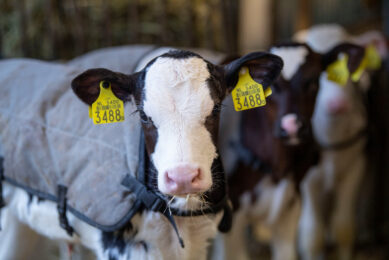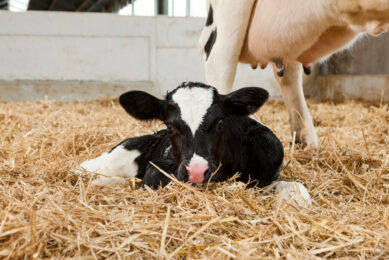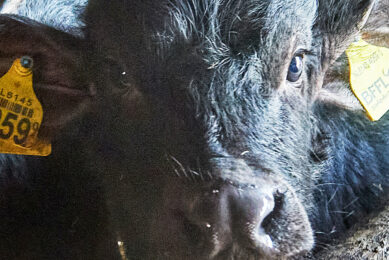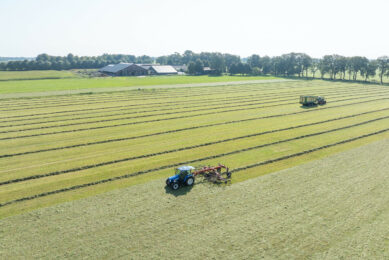Effects of slow-release milk replacer feeding on calf health
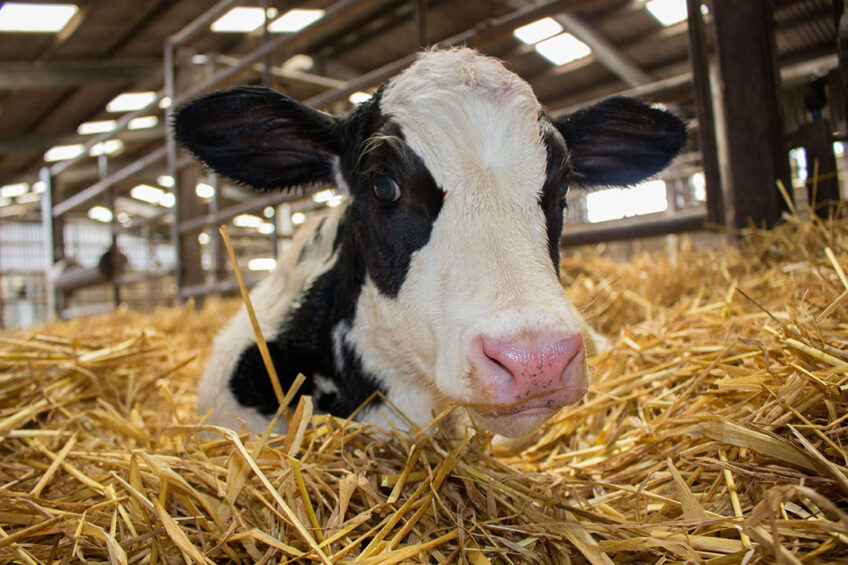
Once daily feeding of slow-release milk replacer has demonstrated favourable patterns of blood variables related to satiety and hunger as well as behavioural patterns that did not differ from conventional twice-daily feeding.
Research carried out in Ireland evaluated the effects of a slow-release milk replacer on the health and behaviour of neonatal dairy calves to look at the potential benefits to welfare during transport. Transport is a very stressful event for animals for a variety of reasons, including exposure to prolonged periods of hunger. Neonatal calves are especially at risk and have shown decreased levels of glucose.
A total of 15 calves were randomly divided into 3 groups of 5:
- A control group was fed twice daily (24 hours) with 3 litres of a conventional milk replacer.
- A slow-release group was fed once in 24 hours with 2 litres of conventional milk replacer and 1 litre of a specialised micro-encapsulated feed.
- An enriched-replacer group was fed once in 24 hours with 3 litres of milk replacer enriched with micellar casein.
Blood samples were taken before feeding and 6, 12, 18 and 24 hours after and analysed for acid-based parameters, electrolytes, glucose, haemoglobin, cortisol, insulin, cholecystokinin and adiponectin. Calf behaviour was recorded between 6 and 14 hours after feeding.
Results
The results showed there was a significant increase in blood pH 6 hours after feeding in all groups, but the glucose, HCO3- and base excess increased significantly in the slow-release group only, whereas sodium increased significantly in the enriched group only. Glucose levels remained higher in the slow-release group, relative to the control at 6, 12 and 18 hours after feeding.
Insulin levels changed significantly over time in the enriched and control group but remained constant in the slow-release group. Insulin levels were also significantly higher in the control group when compared to the slow-release group after feeding.
Adiponectin changed markedly over time after feeding in the control group only, but no major changes were seen between the feeding groups. Behavioural patterns were similar in control and slow-release groups but less favourable (less lying time, more vocalisations) in the enriched group.
In conclusion, the study found no negative effects were observed with feeding a slow-release micro-encapsulated milk replace to calves. In addition, there are some suggestions that it could be beneficial to calf health and welfare although further studies ae needed in this area.
*The study has been published in the Journal of Dairy Research – The effect of slow-release milk replacer feeding on health and behaviour parameters in dairy breed calves
Join 13,000+ subscribers
Subscribe to our newsletter to stay updated about all the need-to-know content in the dairy sector, two times a week.



